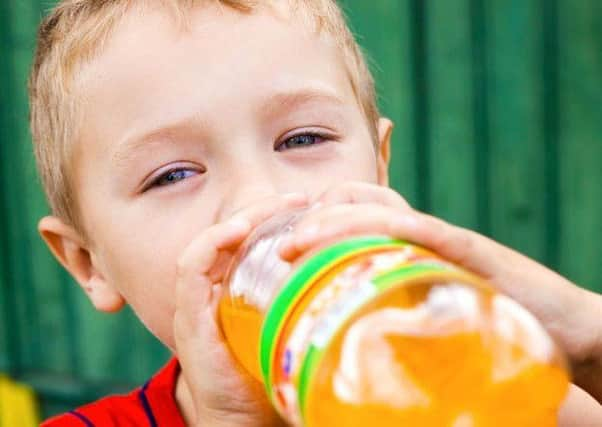Doctors demand fizzy drinks tax to fight obesity


A similar levy has been utilised to great effect in countries such as Mexico, Finland and Latvia, delegates to the Royal College of Physicians of Edinburgh (RCPE) conference in the Capital will hear today.
The revenue from the tax could be used to invest in public health initiatives, experts will tell the conference entitled Obesity – a 21st-century epidemic?
Advertisement
Hide AdAdvertisement
Hide AdCampaigners have called on the SNP to declare its support for the move, although previously ministers have been hesitant due to fears over job losses at AG Barr – the Cumbernauld firm which produces Irn-Bru.
Professor Simon Capewell, chair of Clinical Epidemiology, Public Health and Policy at Liverpool University, addressed the conference on how the recent implementation of a 10 per cent tax in Mexico saw a corresponding 10 per cent reduction in consumption.
He said: “It is now time to move forward on introducing a tax on sugary drinks in the UK as a central component of preventing the continuing escalation of obesity and spiralling healthcare costs.
“Scotland has an excellent track record in addressing public health issues. Notable achievements include smoke-free public places and proposals for minimum unit pricing for alcohol. We need to explore how these developments could be repeated with sugary drinks.”
RCPE president Professor Derek Bell said there is no simple solution to the causes and treatment of obesity, but food and drink taxes are an important part of the discussion.
The calls were welcomed by campaigners, who stressed the government should go further by introducing a 20 per cent tax on sugary beverages.
Malcolm Clark, co-ordinator of the Children’s Food Campaign, said: “A tax of 20 per cent, or 20p per litre, is the kind of level where you are going to see behavioural change.
“It’s about sending signals to manufacturers and consumers that these are drinks that you should be having less of.”
Advertisement
Hide AdAdvertisement
Hide AdSuch a move could save the NHS billions of pounds each year by reducing obesity-related diseases, such as diabetes, and tooth decay.
Mr Clark added: “In Berkeley, California, the impact has been seen most are lower income areas, as 99 cent stores and corner shops stop selling these drinks. This exactly what we want to see as these are the areas where people suffer from more health inequalities.”
The British Soft Drinks Association (BDSA) argued that there was not a compelling health case for taxing sugary beverages.
Director general Gavin Partington said: “Even a modelling study produced by health campaigners predicts that a 20 per cent tax on soft drinks in the UK would lead to a reduction of just four calories a day.”
A Scottish Government spokesperson said: “The Scottish Government will consider the evidence around the effect of food taxes in helping to improve dietary choices.”